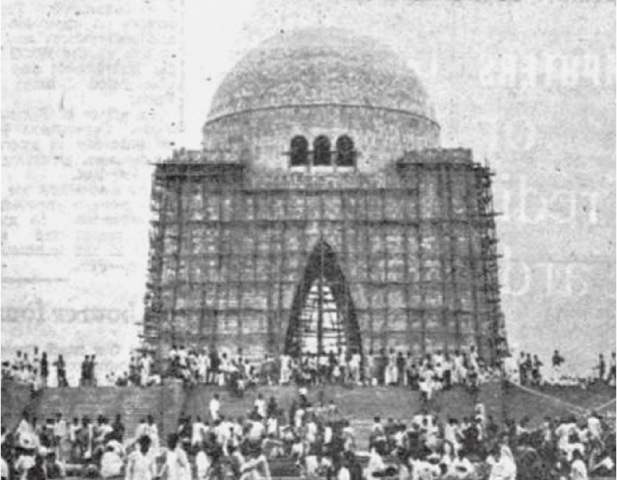
MOVING scenes were witnessed in Karachi on Sept 11, 1969, on Quaid-i-Azam Mohammad Ali Jinnah’s 21st death anniversary. A large number of people belonging to different walks of life, religious backgrounds and political affiliations turned up at the Quaid’s mausoleum to pay homage to the Father of the Nation. Among them was Nawab Siddique Ali Khan, a veteran Muslim League leader and former political secretary to the Quaid-i-Millat, Liaquat Ali Khan, who walked barefoot from his car to the mazar to offer Fateha.
The same day, Mohtarma Shirin Bai in an interview with Radio Pakistan, Karachi, affirmed that the Quaid-i-Azam was the strongest advocate for women’s emancipation. His sister claimed he wanted Pakistani women to play their due role in the character building of future generations and did not want them to take to western culture blindly. In reply to another question she revealed the Quaid’s favourite dishes were biryani and zarda.
A couple of days earlier — on Sept 9, that is –– another internationally renowned political leader was remembered by a group of distinguished individuals. Glowing tributes were paid to the memory of President Ho Chi Minh of North Vietnam (who passed away on Sept 2) at a meeting held under the auspices of the Citizens Ho Chi Minh Condolence Committee at Khaliqdina Hall. It was presided over by Mahmoodul Haq Usmani, secretary general of the National Awami Party (NAP). Poet Faiz Ahmad Faiz, the Lenin Peace Prize winner, traced the history of the great leader and explained various aspects of his private life. He pointed out that Dr Ho had dedicated his life to fighting imperialism and wanted to liberate his people from imperialist yoke.
It was a significant week in the lives of Karachiites not just for politico-historic reasons; the city’s civic structure was too under scrutiny in a big way. On Sept 9, the West Pakistan government announced that it had formed a separate municipality for managing affairs of the housing societies of Karachi. The decision, published in a gazette notification, fulfilled the longstanding demand for separating the housing society areas from the jurisdiction of the Karachi Municipal Corporation (KMC). Several representations were made in the past about the KMC’s interference in those areas and its authority to collect taxes and other revenues from the society residents was seriously challenged. Now that the government had acceded to the demand, a new municipality consisting
of Khudadad Colony, Muslimabad, Sindhi Muslim Housing Society, PECHS and Housing Societies No 1 and 2 would be grouped together to form a new municipality. According to the notification, the decision was taken under the Municipal Administration Ordinance, 1960, and the East Pakistan (Declaration of Municipalities) Rules of 1960, and would likely be enforced from Oct 1 (1969).
On the cultural front, which is Karachi’s real face, an exhibition of Hajra Mansur’s paintings opened at the Arts Council on Sept 10. A Dawn critic wrote that the show looked like a surrealist illustrations of the Rubaiyyat-i-Omar Khayyam. Ms Mansur had mixed the motifs of oriental art with the manners of modern abstract painters, calling it ‘modern oriental pointing’.
On view were 52 paintings and two sculptures, all demonstrating “art’s sincere desire to recapture the glory of a world forsaken by its inheritors”. Not satisfied with merely picking up the elements of oriental art, Ms Mansur had tried to go further by translating her creative efforts into the idiom of modern art. “This is a difficult experiment, and it would be rather interesting to watch Hajra’s progress in this genre,” the critic observed.
Well, the progress is: that Ms Mansur went on to become one of the most formidable artists of the country.
Published in Dawn, September 9th, 2019













































Dear visitor, the comments section is undergoing an overhaul and will return soon.